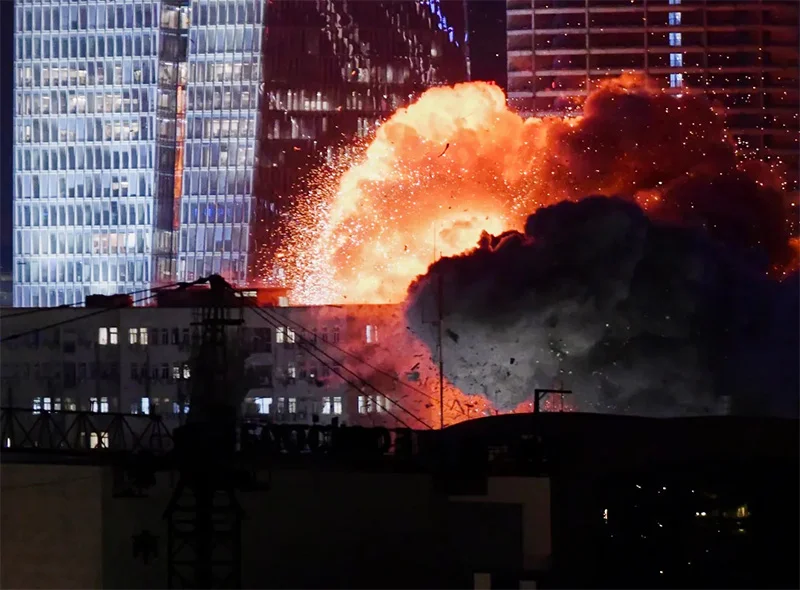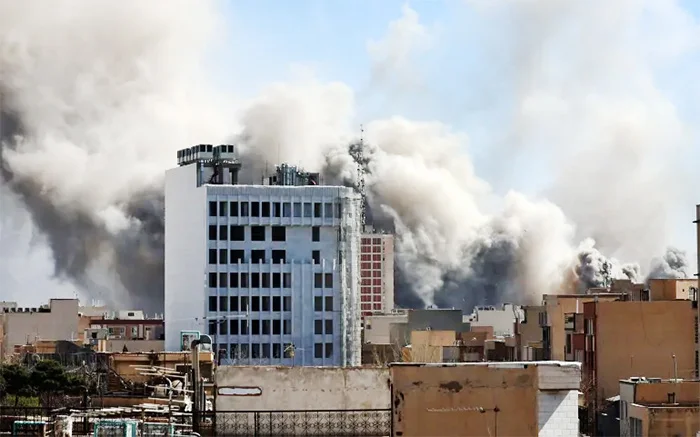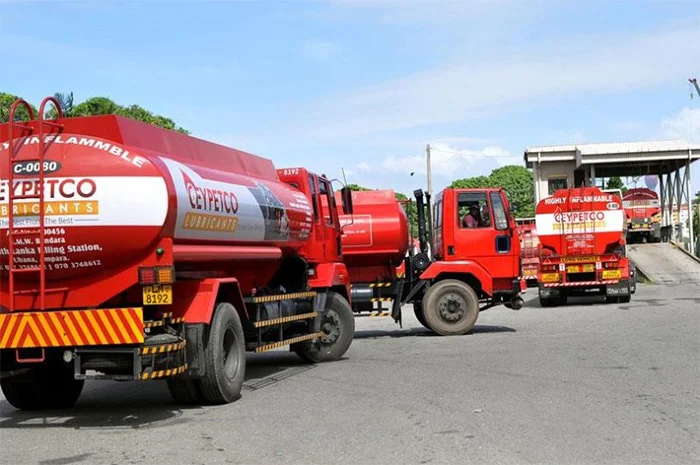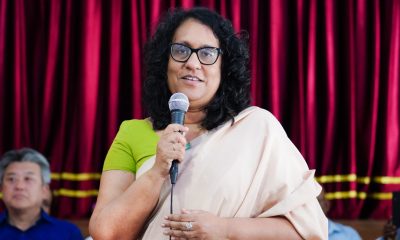News
Marambe in President’s delegation at UN Climate Change Conference despite ‘sacking’

Sujeeva Nivunhella reporting from London
Senior Prof Buddhi Marambe of the Agriculture Faculty of the Peradeniya University, removed from all positions held under the Agriculture Ministry for his stance on the fertilizer issue, was in Glasgow this month as a member of a delegation headed by President Gotabaya Rajapaksa attending the 2021 UN Climate Change Conference (COP26).
Marambe was removed last week from advisory positions held under the Agriculture Ministry over his stance on the fertilizer imports, according to a media statement from the ministry. But this had not been officially communicated to him when he was interviewed here last week.
He was a member of the expert committee to formulate a National Agriculture Policy, the Sri Lanka Agriculture Sector Modernization Project and the Smallholder Agribusiness Partnership Program. An Agriculture Ministry statement accused Marambe of rallying the university community, civil society and the public against government’s policy banning the import of chemical fertilizers and of opposing the previous glyphosate ban.
Excerpts of an interview with Prof. Marambe in London:
Q: You have been accused of criticising the government. If that is the case, then how come you were in the government delegation headed by President Gotabaya Rajapaksa at the the COP26 summit in Glasgow?
A: I did not criticise the government or its concept but only the path it has chosen and methods employed to achieve certain objectives in this effort to switch from chemical to organic fertilisers. As an academic, it’s not my job to be a ‘Yes-man’ when I’m convinced that something is wrong and impractical as in this case.
Food security is a main element of national security. The approach and methods of the government on the basis of wrong advice from vested interests will impact the country’s agriculture sector detrimentally. I wanted to ensure a course correction. Hundred percent organic fertilisers targeted without scientific data and a proper plan is not possible. Precedents of practical experience from Bhutan, Cuba and even the EU where this had been attempted is available.
I’ve been attending climate change summits in my scientific capacity for the past seven years. I am representing my country in negotiations with UN officials and other countries. President Rajapaksa leads this delegation as Head of State of Sri Lanka. There are about 134 countries from the developing world attending this summit. My job there is to present the SL point of view on climate change. If someone says that I am expressing anti-government sentiments, that’s his or her problem, not mine.
Q: There are reports quoting an Agriculture Ministry press release stating that you have been removed from all positions you held at the ministry. What actually happened?
A: I saw those reports and learned of such a move then only. So far I’ve not been officially informed. I am not an official of the Ministry of Agriculture for them to sack me. I am a professor a the Faculty of Agriculture at the University of Peradeniya. That is my permanent job. I still work there and am attending this conference officially. The University granted me paid leave to attend this summit. This year I’ve been invited to make a formal presentation which is a rare opportunity because only a very few countries are invited to do so.
With regard to sacking or removal, I will tell you what happened and how. Experts and university professors are invited to be in committees in both public and private sectors. In this case, the said expert must possess technical knowledge at a comparatively higher level and he or she is expected to share that knowledge with other committee members, focussing particularly on the terms of reference of that committee.
University academics are invited to such committees in an honorary capacity. They are not paid jobs. I was invited by the Minister of Agriculture to be on the committee that formulated the national agriculture policy, starting from December last year. We worked for about nine months as a team. We had large number of engagements with stakeholders, participated in consultation programmes and also prepared the final draft of the policy last month and submitted it to the Minister. Incumbent Secretary to the Ministry of Agriculture, Prof Udith Jayasinghe, too was on that committee before he was appointed to his present position. After handing over the final report that committee’s functions are over. That was my association with the ministry. I cannot understand how anyone could remove a person from a non-existent committee. That may be why I was not told of any removal.
Q: There are press releases attributing the removal for being an advisor to CIC Holdings PLC. Your response?
A: Sri Lanka is a small country. We have people who specialised in different areas. Once a capability of a person is established, he/she is in demand. I have been appointed to several committees in different ministries as a resource person expecting my scientific contribution. The private sector does the same. In 2009, the chairman of the CIC requested my services from the Vice-Chancellor of my University to advice their board on agricultural development. You cannot expect a medical officer or a member of Maha Sangha to do that. It’s a job for an agricultural scientist. The Vice Chancellor approved my serving on that board. I attended a maximum of six meetings per year. I was a non-executive director on that board. I was the Assistant Secretary of the Lanka Organic Agriculture Movement from 2001 to 2003 and worked with Dr. Keerthi Mohotti and Dr. Sarath Ranaweera to make sure that the national agriculture development policy 2003 had an organic component.
Q: Would you like to comment on President Gotabaya Rajapaksa’s decision to ban chemical fertilisers?
A: If you ask me whether we can grow organic, the answer is yes. If you really want to make Sri Lanka 100 percent organic, you can do that. But why? What are we trying to achieve? Going 100 percent organic is a kind of romantic idea very natural in modern times because a lot of people nowadays are trying to romanticise agriculture.
You cannot expect the head of the state or the minister of agriculture to know everything about agriculture. They are politicians and are here to run the country and make sure it prospers. There are people who advise them during these processes. Since independence our agriculture evolved positively. Anything that would hinder that positive process would be detrimental to our food security.
I don’t blame personally the President or the Minister for what has happened. There are some people who misled them. The president and the minister are at fault because they got advice from wrong people.
To give advice on agriculture you need to have agriculture specialists, not only theoreticians but also those who have worked in the field who know the theory and practice. They should be people who believe in science and do science. Now, please don’t ask me who the advisors I am referring to. State Minister Dayasiri Jayasekera said in public that it was Dr. Anuruddha Padeniya of the GMOA and Prof. Priyantha Yapa from the Sabaragamuwa University who gave the advice. May be there are more. Whoever did, they took the country and its people for a ride.
Q: If we were to adopt to 100% organic agriculture overnight what would happen to the country?
A: Overnight or in years, if you want to change to organic agriculture, you can do it. There are people even now doing organic agriculture and making good money. There are companies engaged exclusively in organic agriculture. They produce organic food, sell their produce overseas and to bring foreign exchange home. That’s fine. We have to promote that segment.
But the present scenario is a different kettle of fish. This is about food security which could be achieved in two ways – one is that we produce food on our own, and the second is to import food to fill any shortfall. To import we need foreign exchange. That’s where our cash crops such as tea become important. Under the present scenario, many agriculture products including tea, rubber and coconut have been affected. In my view, even in the long run we cannot achieve 100 percent organic farming without placing our food security in jeopardy.
Q: What is your view on the fertilizer consignment from China allegedly contaminated with harmful bacteria?
A: We have well-set regulations covering fertiliser imports. Regulations under the Fertiliser Act No 68 of 1988 are very strong and protective. If the fertiliser imported is organic, it means that they contain plant and animal matter. Such imports are covered by provisions of the Plant Protection Act No 35 of 1999. These prescribe mandatory procedures to be followed that are designed to ensure that agencies under the Ministry of Agriculture prevent invasive plants and disease coming into the country. There is a National Fertiliser Secretariat and a Director of Fertiliser but when organic fertiliser is imported it is the Director General of Agriculture who holds the authority, not the Director of the Fertiliser Secretariat. Samples of any organic fertiliser imported must go through tests and analysis at the National Plant Quarantine Service (NPQS). The NPQS is not a stand alone body but is also governed by the provisions of the International Plant Protection Convention of the UN and linked to plant quarantine services of 184 countries.
According to these regulation, a sample of any organic fertiliser to be imported must be first analysed at the NPQS. In this particular instance NPQS found very clearly that there are microorganisms present which are harmful to crops.
When organic fertilisers are imported there is another set of standards set by the Sri Lanka Standard Institute that apply. This stipulates that any such organic import must be sterilised. Whenever a sample fails to pass muster, the supplier has a right to appeal and send another sample for analysis. That’s a well-accepted procedure. So in this particular instance, another sample was brought on Sept 23 and that too failed.
According to testing by the German lab, Schutter Global Inspection & Survey Co Ltd, the sample contains Coliform bacteria. E Coli and Erwinia are Coliform bacteria both of which are harmful to humans and plants. Erwinia was detected by the NPQS in an earlier test done here. The Director General of Agriculture has not issued a permit for this ship to come to Sri Lanka. The ship came in without an import permit covering this cargo. Fertilisers imported to the country cannot contain pathogenic microorganisms that are harmful to animals, plants, and humans. If allowed this consignment would cause irreversible damages to our ecosystem.
News
Israel resumes attacks as Iran vows to avenge supreme leader’s death

* Iran begins 40-day mourning after Khamenei killed in US-Israeli attack
* President Pezeshkian condemns killing as ‘a great crime’
Iran has begun 40 days of mourning after Supreme Leader Ayatollah Ali Khamenei was killed in ongoing attacks by the United States and Israel, according to Iranian state media.
Top security officials were also killed in Saturday’s strikes, along with Khamenei’s daughter, son-in-law and grandson. The killings mark one of the most significant blows to Iran’s leadership since the 1979 Islamic revolution Al Jazeera has reported.
Iranian President Masoud Pezeshkian condemned the killing as “a great crime”, according to a statement from his office. He also declared seven days of public holidays in addition to the 40-day mourning period.
Reporting from Tehran, Al Jazeera’s Tohid Asadi said people were pouring into the streets of the capital following the news of Khamenei’s killing.
“There will be expected ceremonies,” he said, noting they would likely take place amid continuing bombardment across the country.
Protests denouncing Khamenei’s killing were also reported elsewhere, including Shiraz, Yasuj and Lorestan.
“There will be expected ceremonies,” he said, noting they would likely take place amid continuing bombardment across the country.
Footage aired by Iranian state media showed supporters mourning at the shrine of Imam Reza in Mashhad, with several people seen crying and collapsing in grief, according to Al Jazeera.
The killing also led to protests in neighbouring Iraq, which declared three days of public mourning. In Baghdad, protesters confronted security forces in the heavily fortified Green Zone, which houses Iraqi government buildings and foreign embassies.
Videos verified by Al Jazeera showed demonstrators waving flags and shouting slogans, with witnesses saying some were attempting to mobilise towards the US Embassy. Footage also showed protesters blocking vehicles at a roundabout near one of the entrances to the area.
There was also a protest in the Pakistani city of Karachi, where footage, verified by Al Jazeera, showed people setting fire to and smashing the windows of the US consulate.
However, there have also been reports of celebrations in Iran, with the Reuters news agency quoting witnesses as saying some people had taken to the streets in Tehran, the nearby city of Karaj and the central city of Isfahan.
Meanwhile, the official IRNA news agency reported that a three-person council, consisting of the country’s president, the chief of the judiciary, and one of the jurists of the Guardian Council, will temporarily assume all leadership duties in the country. The body will temporarily oversee the country until a new supreme leader is elected.
Ali Larijani, the head of Iran’s Supreme National Security Council, accused the US and Israel of trying to plunder Iran, in an interview aired on state TV.
He also called on Iranians to unite. “Groups seeking to divide Iran should know that we will not tolerate it,” he added.

Smoke rises over central Tehran following ongoing U.S.–Israeli strikes on Iran yesterday.[EPA]
Khamenei assumed leadership of Iran in 1989 following the death of Ayatollah Ruhollah Khomeini, who had led the Islamic revolution a decade earlier.
While Khomeini was regarded as the ideological force behind the revolution that ended the Pahlavi monarchy, Khamenei went on to shape Iran’s military and paramilitary apparatus, strengthening both its domestic control and its regional influence.
Meanwhile, the Islamic Revolutionary Guard Corps (IRGC) pledged revenge and said it had launched strikes on 27 bases hosting US troops in the region, as well as Israeli military facilities in Tel Aviv.
Explosions have continued to be reported in Qatar and the United Arab Emirates, while security alerts are in place in several countries across the region.
US President Donald Trump, in a social media post on Sunday, warned Iran that it would be hit “with a force that has ?never been seen before” if it retaliated.
Iran’s retaliatory attacks since Saturday have targeted Israel and US assets across multiple Middle East countries, including Qatar, the UAE, Kuwait, Bahrain, Jordan, Saudi Arabia and Iraq.
Harlan Ullman, chairman of the strategic advisory firm Killowen Group and an adviser to the Atlantic Council in Washington, DC, said the US may have made a “big mistake” by killing Khamenei.
“Decapitation only works when you get all the leaders, and I don’t think that we got all the leaders,” Ullman said, adding that the US should not expect Iran’s leadership to enter negotiations in the immediate aftermath.
Iranian state media reported on Saturday at least 201 people have been killed in the joint US-Israeli attacks across 24 provinces, citing the Red Crescent. In southern Iran, at least 148 people were killed and 95 wounded in a strike on an elementary girls’ school in Minab on Saturday, with the toll continuing to rise, according to state media.
News
CPC has enough fuel stocks

There would be no delay in fuel shipments scheduled for April and May, the Ceylon Petroleum Corporation (CPC) assured yesterday.
Addressing a media briefing in Colombo, CPC Chairman D.J. Rajakaruna said Sri Lanka’s fuel supplies did not originate from the present conflict zone in West Asia and, therefore, supplies to the Corporation would not be disrupted.
He noted that the relevant consignments were due to arrive from India and Singapore as planned.
“We are making this statement responsibly. There is no need for the public to queue up for fuel. Distribution was not originally scheduled for Sunday (01), but due to increased demand, we have deployed all distribution staff to continue fuel issuance. Although Monday (02) is a Poya Day, fuel supplies will continue without interruption,” he said.
The Chairman added that all filling stations had been instructed not to dispense fuel into cans or barrels, warning that legal action would be taken against those attempting to purchase fuel in bulk containers for resale.
News
Lanka, Pakistan strengthen ties at 13th JEC

The 13th Session of the Sri Lanka–Pakistan Joint Economic Commission (JEC) was successfully held recently in Colombo, reinforcing the strong and longstanding economic and diplomatic ties between the two countries.
The Sri Lankan delegation was led by Wasantha Samarasinghe, Minister of Trade, Commerce, Food Security and Cooperative Development, while the Pakistani delegation was headed by Haroon Akhtar Khan, Special Assistant to the Prime Minister of Pakistan for Industries and Production. The session concluded with the signing of the Agreed Minutes by both Co-Chairs, formalising cooperation across multiple sectors.
The Pakistan High Commission in Colombo said that in the IT and digital economy, both sides agreed in principle to establish a Joint Working Group on IT and telecommunications, promote collaboration in emerging technologies, and support each other in international digital forums.
Industrial cooperation was a key focus, with discussions on expanding trade in chemicals, polymers, engineering goods, glassware, surgical instruments, and pharmaceuticals. Sri Lanka invited Pakistani pharmaceutical companies to explore investment opportunities in designated pharmaceutical zones. Both countries also agreed to strengthen collaboration in Export Processing Zones and enhance support for small and medium enterprises through their respective development agencies.
Significant progress was made in agriculture and livestock, including cooperation on meat exports, livestock farming, seed certification, sanitary and phytosanitary harmonisation, pest risk analysis, and capacity building. Procedures for the export of Sri Lankan pineapples and avocados to Pakistan were advanced. Both sides explored electronic phytosanitary certification (ePhyto), blockchain-based seed traceability systems, and increased trade in agro-commodities such as rice, sesame, and onions.
In education, the JEC emphasised academic and research cooperation, faculty and student exchanges, accreditation and quality assurance, and promoting Pakistan as a higher education destination for Sri Lankan students. A Joint Working Group on Education and Science was proposed, alongside renewal of several institutional Memoranda of Understanding.
Cooperation in science, technology, and innovation will continue under existing bilateral frameworks, with plans for joint research in advanced materials, biotechnology, climate change mitigation, and emerging technologies. Collaborative research projects, student exchanges, and co-authored publications were highlighted as key initiatives.
Health sector collaboration will focus on joint research, academic exchanges, regulatory cooperation on therapeutic goods, capacity building, fast-track registration of essential medicines, public-private partnerships, epidemiological surveillance, and coordinated responses to disease outbreaks.
Maritime cooperation was also discussed, with Pakistan offering technical expertise, training, and industrial collaboration through its shipbuilding institutions. Both sides explored enhanced maritime connectivity, including transshipment, port cooperation at Karachi and Gwadar, direct shipping routes, logistics integration, and maritime training programs.
Commerce secretary-level talks reviewed the progress of the Pakistan–Sri Lanka Free Trade Agreement (PSFTA), assessing current implementation and identifying measures to further enhance bilateral trade and economic cooperation.
On the sidelines, Special Assistant Haroon Akhtar Khan held discussions with Sri Lankan Cabinet members on collaboration in industry, labor and foreign employment, and health sectors.
Both delegations expressed satisfaction with the outcomes of the 13th JEC and reaffirmed their commitment to regular engagement and effective implementation of agreed initiatives. It was mutually agreed that the 14th session will be held in Islamabad, with dates to be confirmed through diplomatic channels.
-

 News7 days ago
News7 days agoPrime Minister Attends the 40th Anniversary of the Sri Lanka Nippon Educational and Cultural Centre
-

 Opinion3 days ago
Opinion3 days agoJamming and re-setting the world: What is the role of Donald Trump?
-

 Sports7 days ago
Sports7 days agoDottin out obstructing the field as Sri Lanka clinch series
-

 Features3 days ago
Features3 days agoAn innocent bystander or a passive onlooker?
-

 Features5 days ago
Features5 days agoBuilding on Sand: The Indian market trap
-

 Opinion5 days ago
Opinion5 days agoFuture must be won
-

 Features4 days ago
Features4 days agoRatmalana Airport: The Truth, The Whole Truth, And Nothing But The Truth
-

 Business5 days ago
Business5 days agoDialog partners with Xiaomi to introduce Redmi Note 15 5G Series in Sri Lanka













